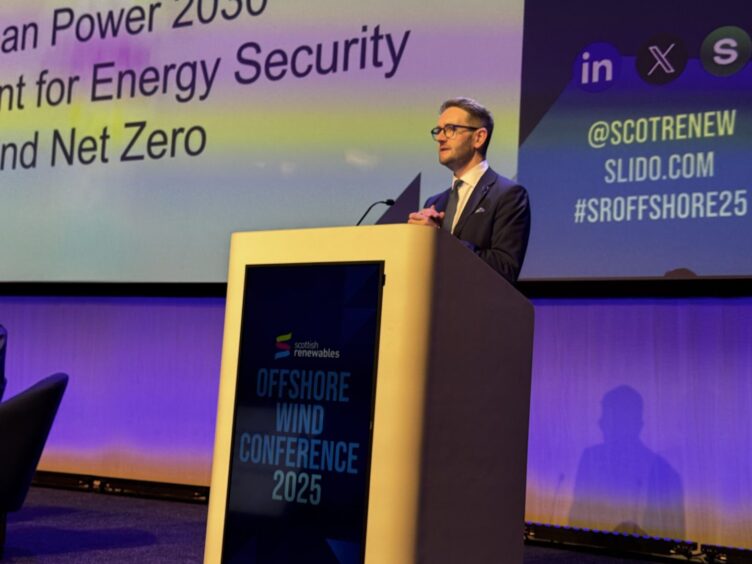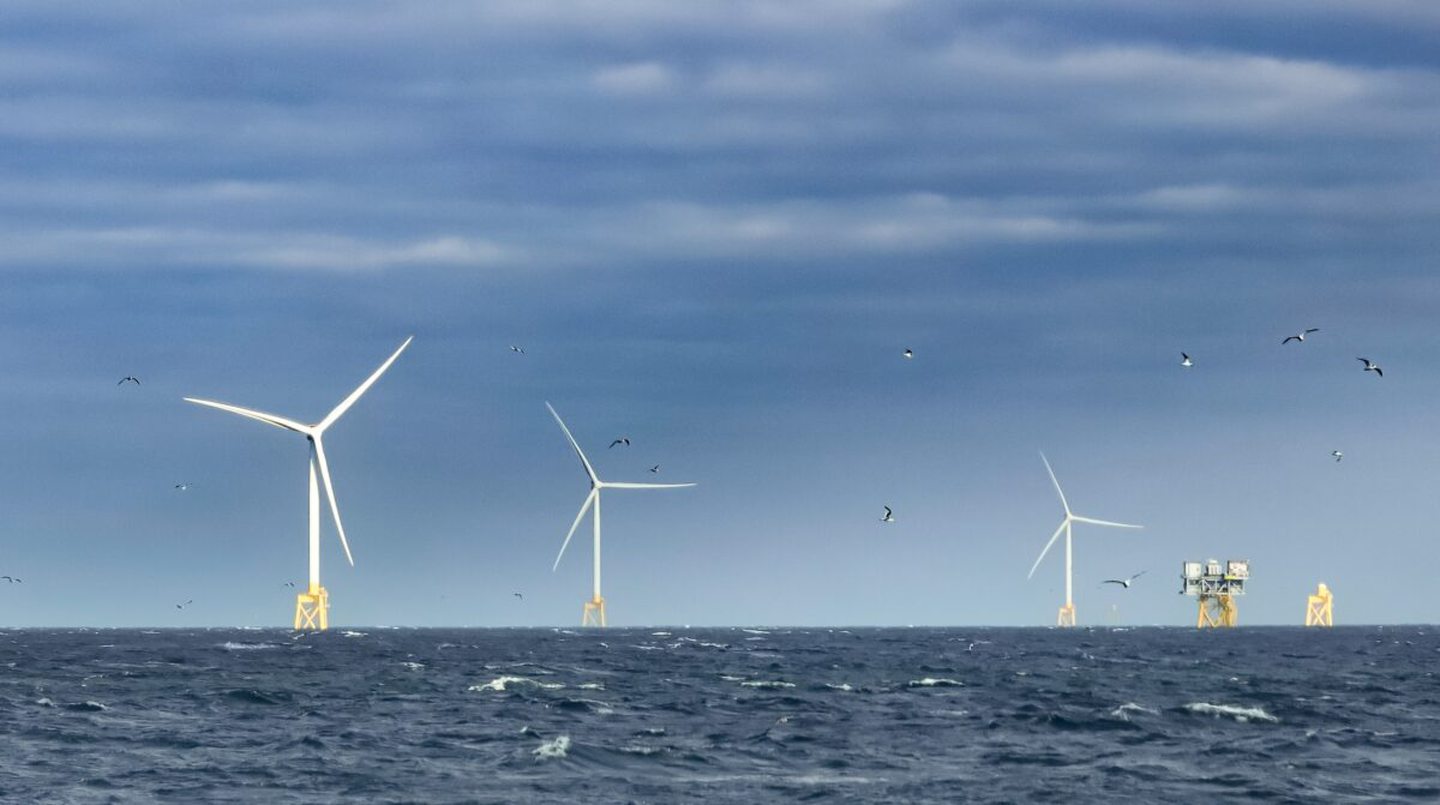
The UK government is aiming to achieve the “biggest and most successful” renewables auction in its history in 2025, according to the head of its Mission Control unit.
Speaking at the Scottish Renewables Offshore Wind Conference in Glasgow, Chris Stark said the next 12 months will be “utterly critical” for the renewable energy sector.
Stark said the UK only has two opportunities to secure the capacity needed to meet its clean power targets across the next two Contracts for Difference (CfD) auctions, AR7 and AR8.
“AR7 is of course our main focus, [and we’re] taking a little bit of extra time to get that right,” he said.
“What we’ve consulted on are some proposals that will expand that auction to be the what I hope will be the biggest and most successful auction for offshore wind, and indeed other renewable technologies, that we’ve ever had in this country.”
Renewables auction stumbles
Stark said the government is aiming to “completely” overturn the outcome of AR5 in 2023, where the previous Conservative government failed to secure any bids from the offshore wind sector.
Since then, Stark said the new Labour government achieved “reasonable success” in AR6 last year.
However, he warned the AR7 will have to “absolutely smash it” to demonstrate that “confidence will come back” to the UK offshore wind market.
The government will soon begin consultations on potential reforms to the CfD process, Stark said, including the option of extending the length of contracts beyond 15 years.
He also flagged the possibility of allowing projects that have not yet received full planning consents to bid into CfD auctions to make them “more competitive”, a proposal he admitted would be “very controversial” within the industry.
Offshore wind transmission
The former Climate Change Committee chief also highlighted the importance of delivering new transmission infrastructure and shortening grid connection delays.
“None of this works without transmission, none of this works without the grid,” he said.
“Probably the most radical stuff, actually, in our action plan was around transmission.”
The UK will need to complete a total of 80 transmission works to meet its 2030 targets, an area Stark recognised is fraught with difficulty for politicians to secure community backing.
On grid connection delays, Stark said these have “absolutely exploded” over the last five years.
UK electricity regulator Ofgem is now working with the National Energy System Operator (NESO) to reform the grid connection process, the importance of which Stark said is “difficult to overstate”.
Renewable energy grid connections
With over 700 GW of new generation or storage projects currently in the queue, Stark said there will be a need to “do some surgery” to prioritise certain projects.
Overall, Stark said a key focus for the government over its next term is to “push as hard as we can on the things we know we need so that we roll into the 2030s in the right place for the bigger challenge of growing a whole economy around power”.
“The really important bit, and this is where the uncertainty lies, is where we go from 2030 to 2050, because that’s when we expect to see possibly a doubling of the power demand, and that is a huge mission for this country,” Stark said.
“Partly why we’re focusing on 2030 is that is probably an even bigger challenge than the one we’re facing now.
“We will collectively have to meet that new demands in the right way, and at the moment we have to open some gas-fired power stations to do that.”
Trump and offshore wind
Elsewhere, Stark highlighted the importance of long duration energy storage in facilitating the growth of offshore wind in the UK.
Alongside pumped storage hydro, Stark in particular highlighted liquid air energy storage as a “really exciting” technology for the future.
Increased interconnections and consumer-led flexibility will also play a role in supporting offshore wind generation, but ensuring the UK can build out that capacity remains a challenge.
Many developers of Scottish offshore wind projects have highlighted the potential introduction of zonal electricity pricing as an existential concern for projects.
Similarly, supply chain capacity and building the necessary skilled workforce remain ongoing hurdles for the sector, though momentum is building as Scotwind and other floating wind projects move closer to final investment decisions.
Stark said the government is focused on ensuring that as projected capital expenditure the UK energy system increases to nearly £50bn per year, that it leads to supply chain opportunities within the UK.
“We need to make sure that we build as much of this in a way that benefits the economy here in the UK, and Scotland,” he said.
“We need to make sure we don’t overheat an already pretty hot supply chain.”
Stark said the re-election of Donald Trump as US president may “strangely” help, as developers potentially cancel projects and look to invest in the UK instead.
Industry reacts to renewable auction reforms
Stark’s comments received a mostly positive reception among offshore wind industry leaders in Glasgow, but developers want to see clarity on the reforms.
ScottishPower Renewables chief executive Charlie Jordan said he wants to see “clarity and confidence so that we know that the budgets are going to be”.
“There’s a lot of planning going into an auction, we want to make sure it’s supported by contracts, by pricing, and then it filters through the supply chain,” he said.
“It costs companies an awful lot of money to bid in and provide pricing across multiple projects, so I think they need to see that consistency so that projects are credible going in.”
Meanwhile, outgoing Corio Generation chief executive Jonathan Cole said the developer wants to see changes to create sustainable pricing, maximise the volumes awarded, and provide long-term certainty to investors.
“Typically in projects nowadays in the UK and everywhere else, you’re spending £200-£300m on a project before you get to the point where you decide if you’re investing in that,” Cole said.
“It’s quite a scary proposition, especially for Scotwind where there are a lot of projects in the market that can all come in the time frame we’re working in.”
Ocean Winds project director Mark Baxter said he is primarily concerned with achieving grid connections for projects in development, rather than securing a CfD.
Baxter also called for more clarity on how the government plans to tackle the “squeeze on the supply chain” in delivering projects for 2030.
Recommended for you

 © Image: SP Energy Networks
© Image: SP Energy Networks © Supplied by EDF Renewables
© Supplied by EDF Renewables